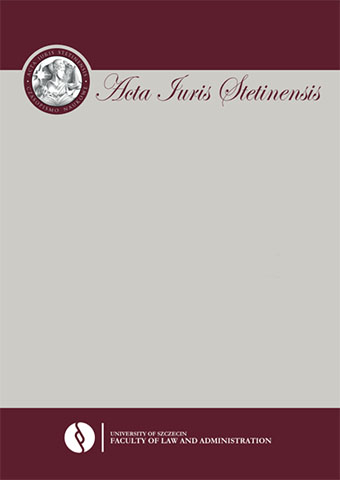







| Authors: |
Maria
Siemaszkiewicz
Uniwersytet Wrocławski |
| Keywords: | warranty ‘business to business’ trade Civil Code amendment |
| Data publikacji całości: | 2016 |
| Page range: | 14 (91-104) |
| Downloads ?: | 710 |
| 1. | Kodeks cywilny. Komentarz, red. E. Gniewek, P. Machnikowski, el./Legalis 2014. |
| 2. | Kodeks cywilny. Komentarz LEX, red. A. Kidyba, Warszawa 2014. |
| 3. | Kodeks cywilny. Komentarz, red. K. Osajda, el./Legalis 2015. |
| 4. | Kodeks cywilny. Tom II. Komentarz do art. 450–1088, red. K. Pietrzykowski, el./Legalis 2015. |
| 5. | Ustawa o prawach konsumenta. Kodeks cywilny (wyciąg). Komentarz, red. B. Kaczmarek-Templin, P. Stec, D. Szostek, el./Legalis 2014. |
| 6. | Ustawa o prawach konsumenta, red. D. Karczewska, M. Namysłowska, T. Skoczny, Warszawa 2015. |
| 7. | Widło J., Rękojmia za wady fizycznej w świetle nowelizacji Kodeksu cywilnego, „Monitor Prawniczy” 2015, nr 4. |
| 8. | Dyrektywa 1999/44/WE Parlamentu Europejskiego i Rady z dnia 25 maja 1999 r. w sprawie niektórych aspektów sprzedaży towarów konsumpcyjnych i związanych z tym gwarancji, Dz. Urz. UE seria L, nr 171, s. 12. |
| 9. | Konwencja Narodów Zjednoczonych o umowach międzynarodowej sprzedaży towarów z dnia 11 kwietnia 1980 r., Dz.U. z 1997 r., nr 45, poz. 286. |
| 10. | Ustawa z dnia 30 maja 2014 r. o prawach konsumenta, Dz.U. z 2014 r., poz. 827. |
| 11. | Ustawa z dnia 23 kwietnia 1964 r. – Kodeks cywilny, Dz.U. z 2014 r., poz. 121 ze zm. |
| 12. | Ustawa z dnia 27 lipca 2002 r. o szczególnych warunkach sprzedaży konsumenckiej oraz o zmianie Kodeksu cywilnego, Dz.U. nr 141, poz. 1176 ze zm. |
| 13. | Ustawa z dnia 17 listopada 1964 r. – Kodeks postępowania cywilnego, Dz.U. z 2014 r., poz. 101 ze zm. |